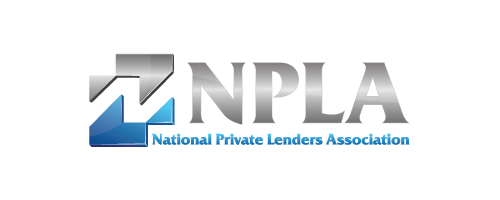NPLA Meeting Recap: Mid-Year Legislative Update

Recap and Insights provided by Zach Wallin, Senior Director of Legal Operations at GoDocs
In the most recent NPLA meeting, members received a national legislative update from the Mortgage Bankers Association (MBA), received a California-specific legislative update from Robert Finlay of Wright, Finlay, and Zak, and received an East Coast legislative update from Jon Hornik of LaRocca, Hornik, Greenberg, Kittredge, Carlin & McPartland LLP.
Become a member of the NPLA to join the next meeting!
Legislative Updates
As the discussion shifted to the legislative update portion of the meeting, NPLA members were first privileged to hear from Stephanie Milner, Associate Vice President, and Liz Facemire, Director of State Government Affairs at MBA. Stephanie shared the main issues and trends that the MBA sees on the local and state levels impacting commercial real estate and NPLA members. Those trends are building performance standards, good cause eviction, rent control, Wack-a-doodle regulations, foreign ownership, and Investment Equity Ownership.
Building Performance Standards: Laws and regulations at the state or local level that mandate how much energy a building can use or how much greenhouse gas emissions the building can emit.
Local Law 97 in NYC: Implementation has begun this year, but the penalties to commercial property owners will not begin until 2030. This implements harsh penalties for those who don’t bring down emissions over the mandated period of time.
-
- MBA is working with the real estate round table to develop an advocacy primer that explains what state and local policymakers should think about before implementing building performance standards (understand electric grids, how to track emissions and energy use, how to calculate it, and how to enforce it).
Good Cause Eviction: List of reasons a landlord can evict someone. It is problematic because it can conflict with the current landlord-tenant laws. Additionally, it can put landlords in a bind when they are trying to evict someone. It can also have a ripple effect impacting property values. NY recently implemented one, but localities have to opt into it.
-
- MBA has successfully pushed back on these policies when certain states have tried to put them into law.
- Not as successful in New York where they recently implemented a Good Cause Eviction Law, but the good news is that localities have to opt into it so it’s not automatically applicable across the state. The first city to opt into the Good Cause Eviction Law was Albany.
Rent Control: Hurts the supply of affordable housing. It’s not good for tenants.
-
- MBA advocated against proposals for rent control in Colorado and Nevada in the last year.
- Fifteen different states have tried to enact rent control legislation, and MBA continues to push back on the policy.
Wack-a-doodle Regulation: Example: South Dakota released a memo interpreting the federal anti-money laundering laws applicable to regulated banking institutions and applying them to non-bank lenders.
-
- MBA pushed back heavily on South Dakota and got them to rescind their memo.
Foreign Ownership: There have been 115 bills filed prohibiting foreign ownership of land across the United States which will impact commercial development. Some are lite requiring the foreign owner to have significant control to be prohibited, but others are not. Some are agricultural specific, and others apply if the property is within a certain distance of a military base.
-
- MBA is watching this very closely and working to push back on these bills to make sure they are limited in their application.
Investment Equity Ownership: Trend of bills that try to limit ownership of residential homes by large investment firms. This will impact the supply and demand of multifamily properties as well.
-
- MBA is watching this closely.
California Legislative Report
After the local and state level MBA presentation, NPLA members then heard from Robert Finlay, Partner at Wright, Finlay & Zak, LLP. He provided an update on pertinent laws affecting the commercial lending industry and reported that a lot of the peculiar, proposed laws in California have been shot down, especially with regards to foreign ownership and investment ownership of properties.
He began by discussing the three bills that were proposed that would have limited investment ownership of properties:
(1) SB1212: would have prevented any investment entity from buying any real estate property in CA after January 1, 2023. This was shot down pretty quickly.
(2) AB2584: would have prevented the business entity from owning more than 1000 single-family units. This one took more to fight, but with the help of the California MBA, was shot down.
(3) AB1133: would prevent home builders from selling more than 2 residential 1-4 units together to one owner of property. This was shot down as well.
No laws passed this year that would prevent or limit investors from purchasing investor property. This is definitely at the forefront of the legislature’s mind and on their radar as well. There will be a need to fight it again next year.
AB2024: foreclosure limitations are likely to pass and add time to the foreclosure process. Right now, California has a relatively short period for a non-judicial foreclosure: you record your Notice of Default, wait 90 days, then record your Notice of Sale, and then, in 21 days, it can be sold. With this new law, if they list the home for sale, they can get an extra 45-day extension; then, if they get a signed sales agreement, they can get another 45 days. With this bill, we will see a ton of fraud, with bogus listing agreements and sales agreements. So, we expect an extra 90 days to be added to the foreclosure sales process. This will be effective January 1, 2025.
SB1103: still in the works, and MBA is still opposing it. They are trying to extend residential tenant protections to commercial tenants, including eviction limitations and relocation. MBA is still optimistic they will defeat this one.
AB1932 and AB2616: seek to limit the existing mortgage interest deduction from income taxes in California to only a taxpayer’s primary residences only, for taxable years beginning January 1, 2025. This would have excluded investment properties which would have discouraged people from buying investment properties. They’re opposing this as it will affect fix-n-flip lenders.
AB1286: seeks to expand Rosenthal Fair Debt Collection Practices Act to cover small business debt and loan guaranties of $100k or more. If you were going to enforce guaranty, it would be subject to the California Fair Debt Collection Act, and there is exposure for any violation. They are still fighting this and will keep us updated.
SB1061: sought to add certain protections for collection of medical debt, but it included medical debt that was secured by property. MBA was able to oppose this and get real property exempt from that.
AB968: passed in 2023 but went into effect ten days ago, and it directly affects your fix-n-flip customers. Effective July 1, 2024, fix and flippers must disclose all repairs and renovations on properties being resold within 18 months. They now need to disclose all repairs that were made, including the contractor’s information for all repairs over $500 and all permits pulled. This creates exposure if you don’t follow the rules and make disclosures. A lot more work for Fix and Flippers. The concern for lenders is that it is increasing fix-and-flippers costs because they are going to have to get permits and use licensed professionals. This will also cause an added delay in getting the permits.
SB 1146: In California, and you’re making a loan over 10% (usury limit), one of the exceptions is if your loan was made by a licensed real estate broker; because of In re Moon, it restricted your ability to do a forbearance, extension, or modification. The In re Moon case said you can violate usury by simply doing a forbearance, extension, or modification of your loan if you don’t have the original Broker involved and it was a purchase money loan. The good news is SB 1146 helps consumers. If it passes, it gives lenders the ability to make modifications and help borrowers avoid foreclosure by making forbearances, extensions, and modifications.
East Coast Legislative Report
Following the California Legislative Report, NPLA members were then pleased to hear from Jon Hornick of LaRocca, Hornik, Greenberg, Kittredge, Carlin & McPartland LLP. Jon shared the East Coast Legislative Report and focused on the themes of the expansion of rent control laws, the limitation of foreclosure rights, and the provision of more rights to the borrower. This portion of the meeting discussed proposed legislation making its way through the New York and New Jersey legislative bodies and the efforts made to oppose them.
New York
Bill A10210: Extends the existing rent control laws until June 30, 2027. They were set to expire June 30, 2024, but were extended. Dwelling subject to the rent stabilization law of 1969 will continue to remain under such protections.
New Jersey
Bill 5595: Expands and amends the existing New Jersey Residential Foreclosure Prevention Program. This bill created a fund that people could dip into to stave off foreclosure and expanded the rights of those who could dip into it.
Bill A819: During foreclosure process, if you have lent against multifamily or age restricted housing, this bill requires you to maintain age restricted housing in place during the foreclosure process.
Bill A2269: Aims to expand the eligibility criteria for individuals to become parties in foreclosure actions related to property sold for unpaid taxes or municipal liens when the property goes for less than fair market value. The rationale is that if you are getting the property at a discount and receiving such a good deal, you should be required to expand those you need involve in the proceedings as they may have a right to receive compensation for those unpaid taxes or liens.
A2535: Proposes to amend the Fair Foreclosure Act, to increase and add a private right of action for violations of the Fair Foreclosure Act of New Jersey. Today, only the state can bring an action or violation under the Fair Foreclosure Act, they are creating a private right so borrowers who want to sue under this will now have standing. This will only complicate foreclosures and make for another level of litigation.
Bill A3154: Gives a 6-month forbearance provision for high-risk mortgage loans upon borrowers’ request. This halts foreclosure proceedings and freezes interest rates during this period. This bill requires lenders to participate in mediation programs with borrowers, imposes stricter compliance requirements on lenders and their attorneys, introduces procedural safeguards within the court system, and significantly enhances borrowers’ rights under foreclosure.
The NPLA has its own legislative and regulatory tracking link where members can submit legislation that they see in their states or local municipalities. This tracking link (as seen below) allows information to be sent to the NPLA legislative committee so all members can stay apprised of legislative developments.
NPLA Legislative Regulatory Tracking for Members
Suffice it to say that all members of the NPLA in attendance left with a greater understanding of the legislation affecting commercial real estate and the groups that work tirelessly to oppose harmful laws that could affect them. This increased understanding will allow all members to advocate for the benefit of the private lending community and support local and state efforts to oppose the troubling issues, trends, and laws affecting them.
Author Bio:
GoDocs is an innovative leader in automated loan document generation, transforming the commercial lending process. With a fully cloud-based platform, GoDocs provides a flexible digital solution that makes commercial loans more cost-effective to document and faster to close, all while maintaining compliance in all 50 states. GoDocs is a Corporate Member of the NPLA.
